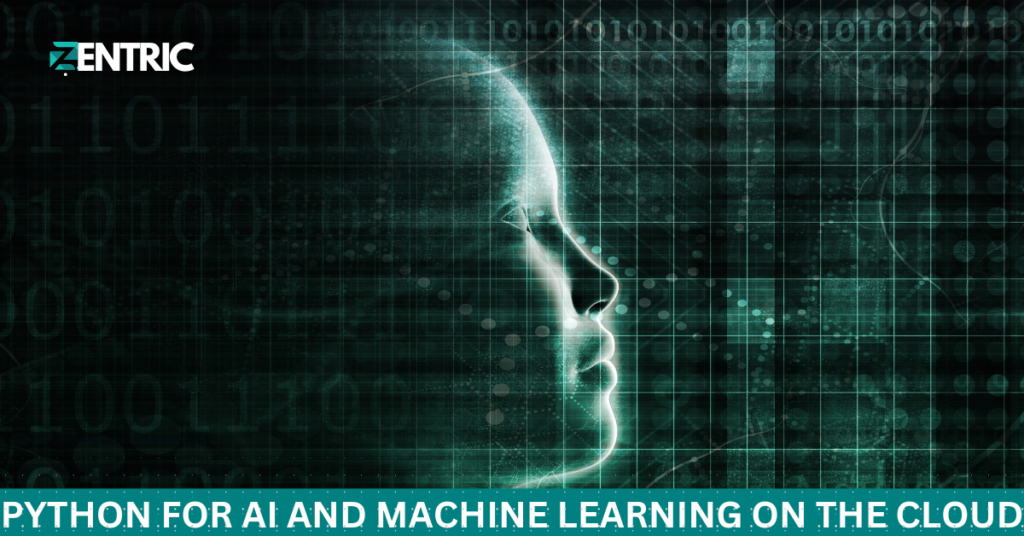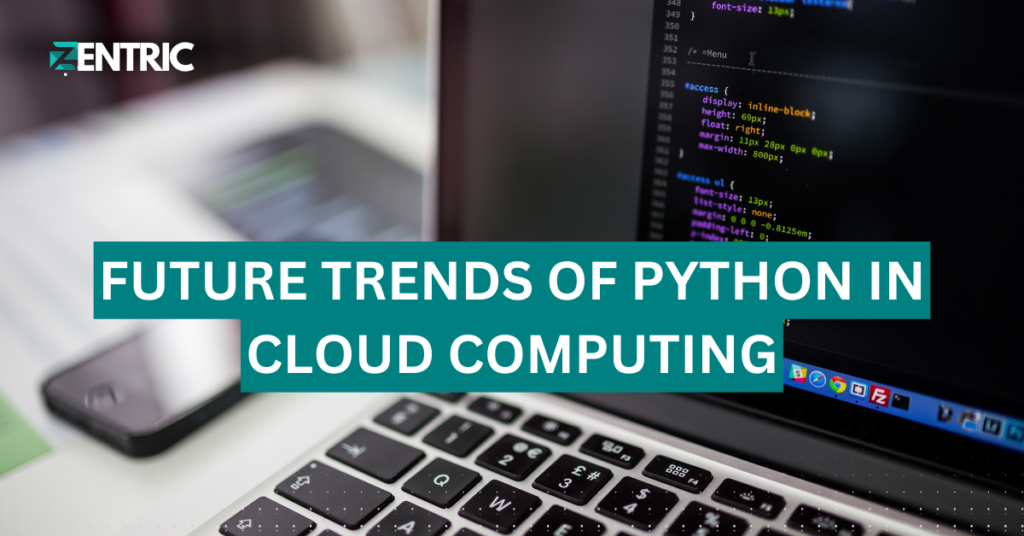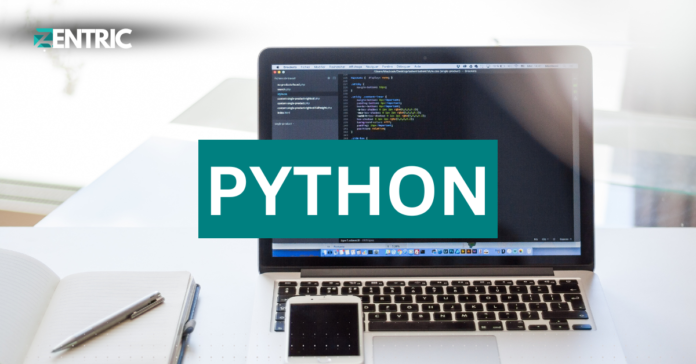Introduction
Python has been one of the most widely used programming languages for cloud computing because it is easy to use, flexible, and has a huge library network. With the world moving increasingly towards cloud services, Python offers the tools needed to make workflow run smoothly, automation of processes, and scalability. The article below examines how Python can be used in an attempt to optimize cloud computing workflows effectively.
The Role of Python in Cloud Computing
Python plays a key role in cloud computing by the facilitation of excellent support for application deployment, automation, and orchestration. Cloud vendors including AWS, Microsoft Azure, and Google Cloud have rich Python SDKs that can be used for programmatically operating with cloud resources. Python enables ease of doing business in the cloud, with the management of virtual machines all the way up to the orchestration of high-level workflows, thus making Python a favorite amongst developers and institutions.
Advantages of Python for Cloud Workflows
Python has several benefits for cloud computing procedures. The simplicity of Python enables developers to easily code cleanly and maintainable, and learning cloud functions thus becomes easier. Extensive API support and support for cloud services make it simple for the different cloud components to communicate with each other. Python is scalable because it can support vast amounts of data. Automation by it achieves efficiency through the elimination of the need for extensive human intervention.
Python Cloud Automation Libraries
There are various Python libraries that make cloud automation easier. Boto3 (AWS), Google Cloud Client Library, and Azure SDK for Python offer cloud service access directly and enable developers to programmatically configure, set up, and manage cloud resources. Terraform and Ansible, popular infrastructure automation tools, have Python support for custom scripting. Remote server management libraries such as Fabric and Paramiko make Python indispensable for cloud automation.
Deploying Cloud Applications using Python
Python enables cloud application deployment using cloud-native platforms such as Flask, Django, and FastAPI. Python applications are deployable on containerization platforms such as Docker and Kubernetes, where scaling and deployment are easy. Serverless platforms such as AWS Lambda and Google Cloud Functions enable developers to build and deploy Python applications without managing the infrastructure, lowering operational complexity.
Managing Cloud Infrastructure using Python
Python is also heavily used for cloud infrastructure management using Infrastructure as Code (IaC) tools. Terraform, Pulumi, and AWS CloudFormation are some of the tools through which the developer can provision cloud resources programmatically by scripting in Python. Ansible kind of frameworks assist in configuration management, and Python-based tools like Prometheus and Datadog give real-time feedback about cloud performance for efficient infrastructure management.
Python for Serverless Computing
Serverless computing enables developers to run code without provisioning or controlling servers. Python is a leading language in serverless environments, backed by AWS Lambda, Google Cloud Functions, and Azure Functions. Python’s event-driven application model guarantees smooth function execution, perfect for microservices, event processing, and real-time data analysis. Its lightweight nature and rich libraries make serverless computing efficient.
Automating Cloud Security with Python
Cloud security is an important function of cloud computing, and Python provides different features to make cloud security better. AWS Security Hub SDK, Google Cloud Security Command Center SDK, and Azure Security Center SDK libraries can be utilized to monitor security automatically as well as check compliance. HashiCorp Vault security frameworks implemented in Python are helpful in credential management, whereas security automation support from threat detectors like OpenVAS and Snort assist in making cloud security more robust.
Python in Multi-Cloud and Hybrid Cloud Deployments
Python supports smooth operation in multi-cloud and hybrid cloud environments. Multi-cloud policies are all about leveraging the services of multiple cloud providers, and Python APIs support smooth interaction between them. Python orchestration tools such as Kubernetes make multi-cloud deployment easy, and hybrid cloud platforms such as Apache Libcloud and OpenStack enable organizations to leverage cloud and on-premises resources effectively.
Python for Cloud-Based Data Processing
Python can be used to process data based on the cloud.
Cloud data processing depends to a great extent on Python because of its powerful data manipulation capabilities. Libraries in Python like Pandas, NumPy, and Dask make it easy to process large amounts of data in cloud infrastructure. Apache Spark using PySpark offers distributed data processing features, and cloud databases like AWS Redshift and Google BigQuery offer Python support for analytics and query. Python support for data lakes and warehouses makes it a vital component of cloud data pipelines.
Python for AI and Machine Learning on the Cloud
Python rules the world of AI and machine learning and is therefore among the most popular languages for cloud-based AI. Cloud providers have AI/ML services such as AWS SageMaker, Google AI Platform, and Azure Machine Learning, all of which support Python. Well-known AI libraries such as TensorFlow, PyTorch, and Scikit-learn operate seamlessly on cloud platforms, allowing companies to train and deploy machine learning models at scale.

Best Practices for Python Utilization in Cloud Computing
For use of Python to the fullest extent in cloud computing, developers have to follow best practices like coding reusable and modular code, coding in virtual environments, and limiting API calls in order to cut down latency. Security best practices involve management of credentials via environment variables, encryption, and all-around logging. Continuous integration and deployment (CI/CD) pipelines via Python-based tools like Jenkins and GitHub Actions assist to facilitate smooth cloud development processes.
Challenges and Issues with Python in the Cloud
Regardless of its strengths, Python in cloud computing has its shortcomings. CPU-bound performance issues might necessitate optimization methods or compiled languages such as C for performance-heavy workloads. Issues with dependency management might arise, calling for Docker containers or virtual environments. Cloud service pricing models also need to be carefully evaluated to prevent unnecessary costs with Python-based cloud applications.
Future Trends of Python in Cloud Computing
Usage of Python in cloud computing will expand with the advancement of AI, edge computing, and automation. Trends are emerging like the use of Python with low-code and no-code cloud platforms, the expansion of AI-based cloud automation, and more utilization of Python-based security solutions. Cloud quantum computing also sees the increasing adoption of Python, as Qiskit and Cirq libraries allow quantum cloud computing applications.

Conclusion
Python has solidified its position as a cloud computing workflow leader, providing automation, scalability, and simplicity of integration with cloud vendors. From managing cloud infrastructure to delivering applications or utilizing AI-powered cloud solutions, the versatility of Python makes it a preferred tool for developers and businesses. With the advent of cloud computing’s future, Python will be leading the charge, driving innovation and efficiency in the digital era.



